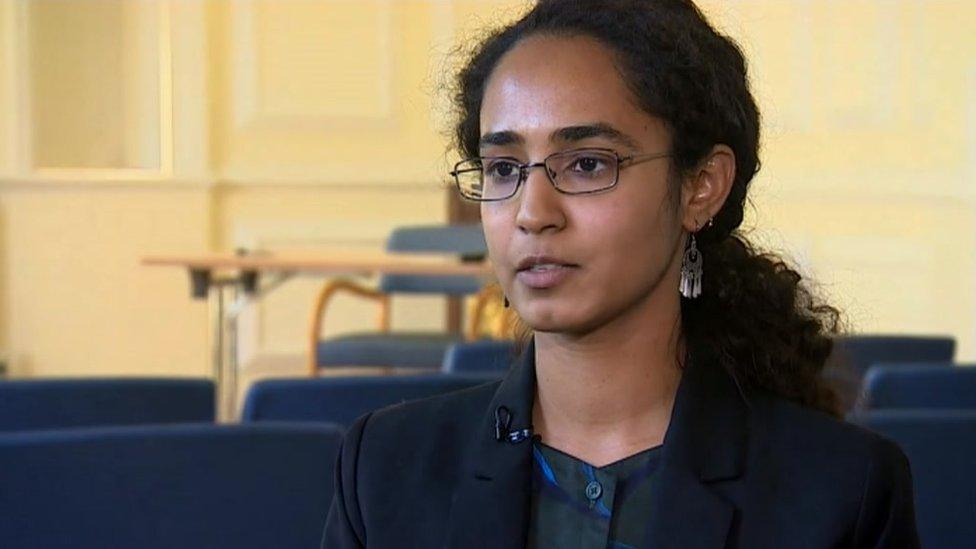Cambridge University academic risked losing job over residency appeal
- Published

University of Cambridge research fellow Asiya Islam had to drop her residency appeal or face losing her job
An academic has been forced to ditch her appeal for permanent residency or risk losing her job.
Dr Asiya Islam, a sociologist at Newnham College, University of Cambridge, was denied leave to remain and lodged an appeal in November.
Her visa expired in January and lawyers advised her to apply for a temporary visa to avoid "overstaying" and losing the right to work.
The Home Office confirmed Dr Islam has temporary leave to remain.
Dr Islam, 31, originally from Aligarh in India, has lived in the UK for 10 years and was awarded a three-year junior research fellowship at the university last year.
The Home Office rejected her permanent residency application because of the amount of time she spent overseas.
Her visa expired on 30 January and she was told her only option was to apply for a temporary tier 2 visa, if she wanted to keep working in the UK, since her appeal was still pending.

Dr Islam is a sociologist at Newnham College at the University of Cambridge
She said: "I would not be physically removed from the country while the appeal was pending but I would become an overstayer in the country, I would lose the right to work and rent.
"So effectively I would be jobless and homeless and enter this legal limbo where I don't have a legal status to stay in the country."
Dr Islam praised her employers for their support and said she felt like she was living through a "crisis" situation.
Her visa will only be valid until the end of her current contract in 2022.
A Home Office spokeswoman said its guidance was clear that no immigration application can be processed while an appeal is outstanding.
"One of the things with this saga is that a lot of people have contacted me and said they've been in similar positions. This is not an isolated case," Dr Islam said.
More than a thousand academics signed a letter last year in protest at the Home Office's decision.
- Published11 November 2019

- Published21 January 2020

- Published6 November 2019
